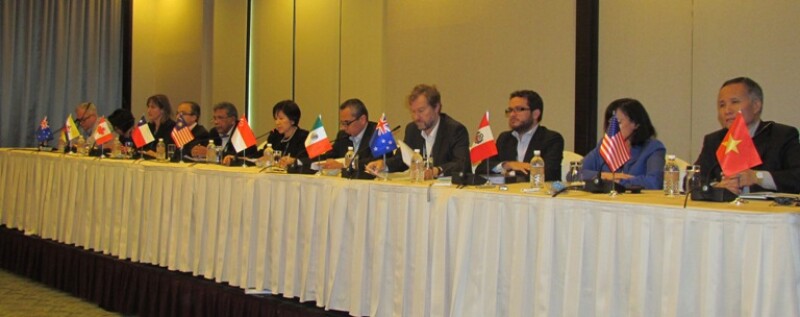Friday sees the start of the latest (the 19th in fact) round of talks for the Trans-Pacific Partnership (TPP) in Bandar Seri Begawan, Brunei. The country will play host to sherpas – the negotiators that do the heavy lifting before a deal is agreed – from the US, Australia, New Zealand, Chile, Peru, Brunei, Singapore, Malaysia, Vietnam, Canada, Mexico and Japan.
IP is already proving one of the hardest topics to resolve. That’s not surprising, given the gulf in economic development between, say, Vietnam on the one side and the US on the other.

The US government is understood to be pushing its trading partners to accept a range of so-called TRIPs-plus measures on IP, including patent term extensions and tougher rules on data exclusivity. It’s not just about pharmaceutical patents either. Negotiations continue to beef up regional rules on well-known trade marks, relax rules on what constitutes a trade mark and to give copyright owners more rights over their works.
So far, so what? The talks are simply rehashing old arguments about the level of protection countries should offer IP owners that have gone on since trade negotiators added IP to the table in the 1990s.
But what makes these talks different is the lengths to which negotiators are going to be seen to be open to all stakeholders. ACTA negotiators were stung (and ultimately beaten) by protestors angry about deals being conducted in secret and parliamentarians cross about being asked to rubber stamp agreements over which they had no control. Now many of the deal makers are trying to improve levels of transparency in the talks.
Of course some of this is window dressing. In the September issue of Managing IP we take a closer look at free trade deals and what they mean for IP owners and hear from stakeholders on both sides of the pharmaceutical patent divide. It still appears that big pharma has more direct access to their national negotiators than do groups that are sceptical about the expansion of IP rights.
But negotiators are providing more opportunities than ever for stakeholders to get involved. At the 16th round of TPP talks, for example, negotiations were adjourned for a day for meetings with some of the 300 stakeholders who were able to make it to Singapore. In Brunei a morning has been set aside for stakeholder presentations.
Such moves might not be enough to end complaints about secrecy and the close relationship between governments and big business. But they might help governments conclude an agreement that is more palatable to their electorates. As ACTA demonstrated, a one-sided deal can mean no deal at all.









